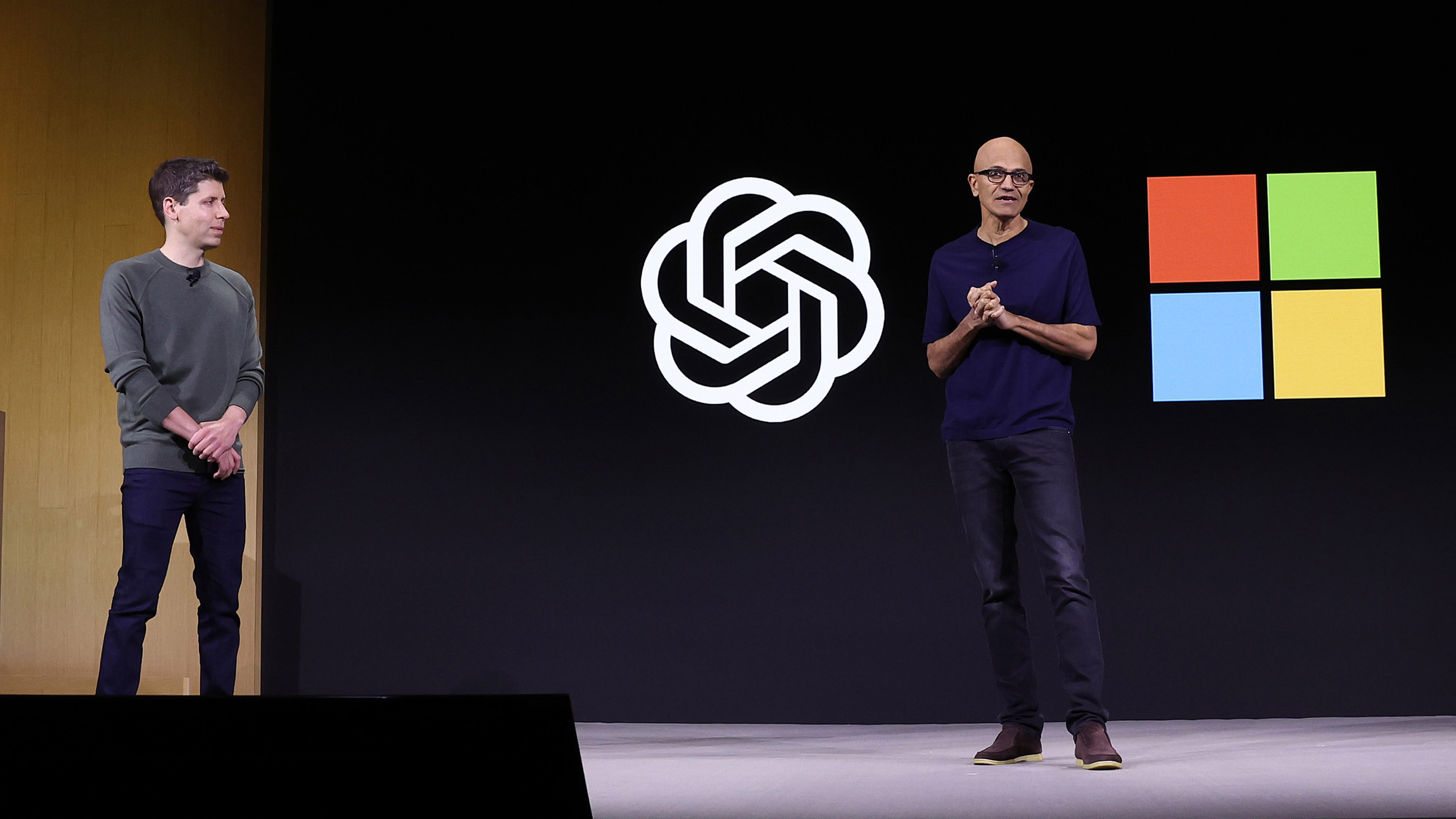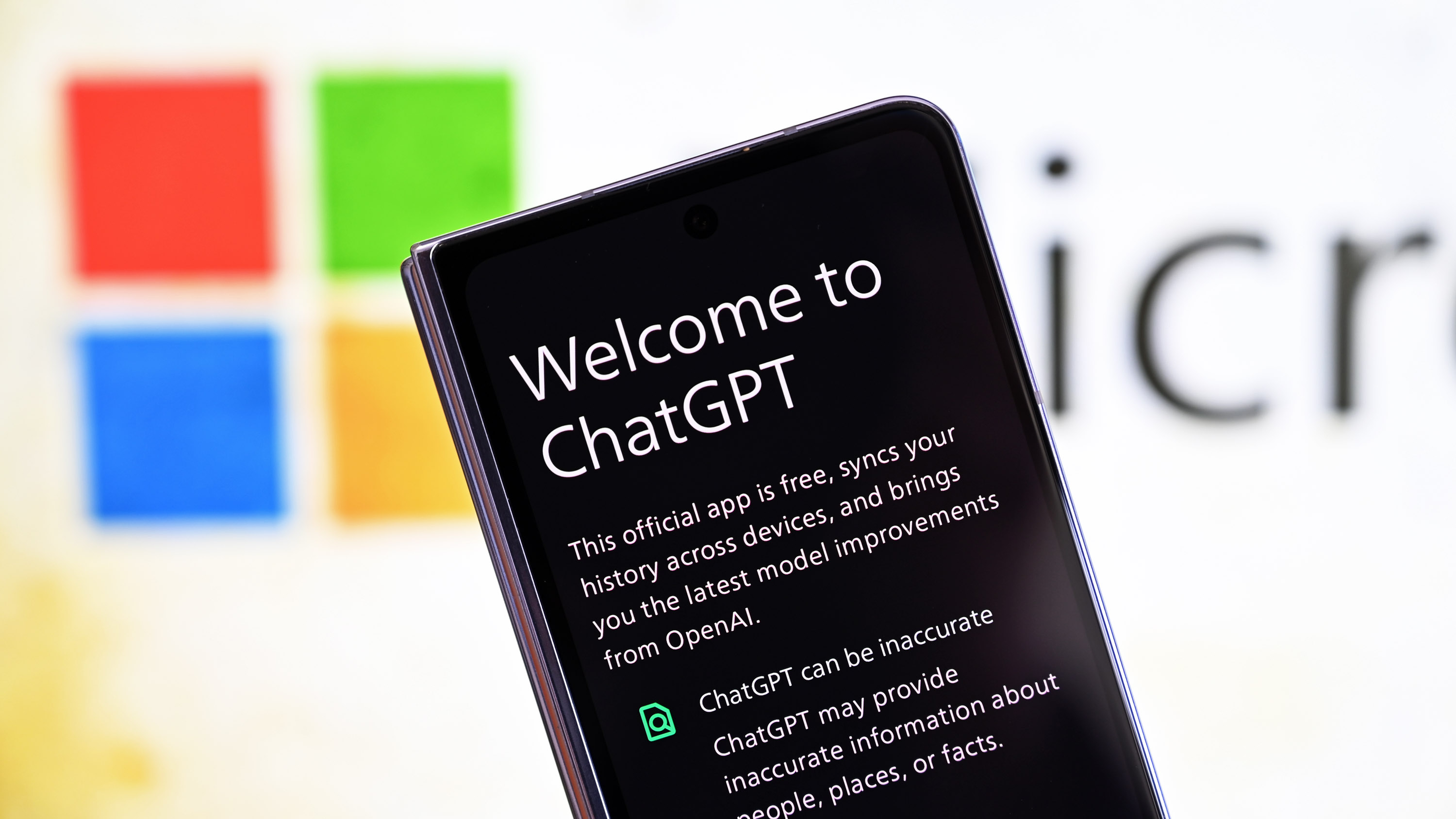Google asks US government to shatter Microsoft's exclusive cloud deal with OpenAI, claiming consumers may incur extra charges buying the ChatGPT maker's tech through Microsoft
Google wants the US government to break Microsoft's exclusive deal, hosting OpenAI's tech stack on its cloud servers.

- Google wants the FTC to break Microsoft's cloud deal with OpenAI.
- Buying OpenAI's tech through Microsoft may see extra charges.
- OpenAI wants to scrap an AGI clause to extend the partnership.
In a surprising turn of events, Google has reportedly asked the US government to break Microsoft's exclusive agreement to host OpenAI's technology on its cloud servers. For context, Microsoft and OpenAI are in a mutually beneficial partnership. The former gets access to the ChatGPT maker's advanced AI models and intellectual property (IP). In contrast, the latter gets computing power and funding for its sophisticated AI advances.
But as it now seems, Google wants the US government to intervene, potentially changing the terms of the agreement between Microsoft and OpenAI by breaking the ChatGPT maker's exclusive deal with Microsoft for its vast cloud computing resources. According to The Information, Google expressed concerns when the US Federal Trade Commission (FTC) asked about Microsoft's business practices as part of an ongoing investigation into its operations.
If the FTC greenlights Google's request, Microsoft's cloud computing business could face critical challenges. For instance, Google and Amazon also provide cloud computing services, meaning they could host OpenAI's AI models. As such, OpenAI's user base won't need to leverage Microsoft's servers to access the ChatGPT maker's tech stack.
The report further detailed that consumers buying OpenAI's tech through Microsoft may face extra charges, especially if they aren't already using Microsoft's cloud computing services in their operations.
OpenAI CFO Sarah Friar previously placed Microsoft on the spot by indicating that the tech giant isn't moving fast enough to meet the ChatGPT maker's cloud computing needs. The AI firm expressed its need for faster server supplies to support its ever-evolving advances in the landscape.
As you may know, OpenAI was on the verge of bankruptcy with projections of a $5 billion loss in the next 12 months. However, the ChatGPT maker's lifeline was extended through another round of funding from investors, including Microsoft, NVIDIA, and other key stakeholders. It raised $6.6 billion, pushing its market cap to over $157 billion.
The ChatGPT maker highlighted its detailed plans to secure more data centers and AI chips for its advanced ventures with the funds, potentially emancipating itself from an overreliance on Microsoft for its cloud computing needs.
Get the Windows Central Newsletter
All the latest news, reviews, and guides for Windows and Xbox diehards.
Microsoft's partnership with OpenAI gets complicated by the day

Over the weekend, a separate report indicated OpenAI is in discussions to scrap a stringent clause that would void its partnership with Microsoft immediately after it hits the coveted AGI moment. The report further detailed that the strategic move will help OpenAI secure future funding and investment for its AI advances from Microsoft beyond AGI.
A technical employee at OpenAI indicated the company might have already achieved the coveted benchmark after shipping the OpenAI o1 reasoning model from preview to general availability. Major tech players in the AI landscape have shared different accounts and timeframes, highlighting when AGI could be achieved.
OpenAI CEO Sam Altman says AGI can be achieved in 2025 with current hardware. He added that the benchmark would whoosh by with "surprisingly little" societal impact. However, Microsoft AI CEO Mustafa Suleyman says AGI could be achieved within 7 years. The executive further claimed it wouldn't be possible to hit the threshold with the current hardware, speculating a shift within the next two to five generations.
This news comes amid reports top AI labs, including Google, Anthropic, and OpenAI are struggling to develop advanced AI models due to a lack of high-quality training content. However, the claims have been disputed by Sam Altman, who indicated "There's no wall." Former Google CEO Eric Schmidt shared the same sentiments, highlighting that there's no evidence scaling law has begun to stop the development of AI.
Elsewhere, Microsoft CEO Satya Nadella's comment about Google's missed opportunity in the AI landscape triggered CEO Sundar Pichai to throw a lethal jab at the Redmond giant's efforts in AI. According to Pichai:
"I would love to do a side-by-side comparison of our models. They're using someone else's models."
To this end, it remains unclear if the FTC will greenlight Google's request to foster fair business practices in cloud computing. It'll be interesting to see how the regulation could impact Microsoft's multi-billion dollar partnership with OpenAI.

Kevin Okemwa is a seasoned tech journalist based in Nairobi, Kenya with lots of experience covering the latest trends and developments in the industry at Windows Central. With a passion for innovation and a keen eye for detail, he has written for leading publications such as OnMSFT, MakeUseOf, and Windows Report, providing insightful analysis and breaking news on everything revolving around the Microsoft ecosystem. While AFK and not busy following the ever-emerging trends in tech, you can find him exploring the world or listening to music.
-
naddy69 "To this end, it remains unclear if the FTC will greenlight Google's request to foster fair business practices in cloud computing."Reply
U.S. anti-trust laws are in place to protect consumers. Not whining competitors.
Microsoft is free to enter into any business contracts with whatever companies they want. Google claiming that "consumers buying OpenAI's tech through Microsoft MAY face extra charges" is baseless. When Microsoft becomes a monopoly on AI (or anything else) AND starts acting like a monopoly by charging higher and higher prices, THEN the government will get involved.
This will go nowhere, and Google will join the long list of companies/people who do not understand the law.
OTOH, OpenAI is certainly free to use other companies (Google, Amazon, etc.) to get more cloud computing resources. They may need to wait until their contract with MS expires (assuming it is exclusive on this point), but there is nothing illegal going on here.
The chances of MS becoming a market leader in AI are slim. I personally think that OpenAI would LIKE to get less aligned with MS and get more aligned with Google and/or Apple. For obvious reasons. -
fjtorres5591 Reply
They may not know Kahn is history and Ferguson is more interested in "free speech censorship", protectionism, and "fostering innovation" than padding Google's pocketbook.naddy69 said:This will go nowhere, and Google will join the long list of companies/people who do not understand the law.
OTOH, OpenAI is certainly free to use other companies (Google, Amazon, etc.) to get more cloud computing resources. They may need to wait until their contract with MS expires (assuming it is exclusive on this point), but there is nothing illegal going on here.
The chances of MS becoming a market leader in AI are slim. I personally think that OpenAI would LIKE to get less aligned with MS and get more aligned with Google and/or Apple. For obvious reasons.
Their whine might carry a bit more bite in Europe where they see antitrust as protecting their competitors but when it comes to AI and cloud they have precious little to protect. The choice for them is Amazon, Google, and MS and they see little difference between the three American devils. And of the three, Google is the one they are actively pursuing under their version of antitrust.
As to OpenAI preferences, their primary interest is tapping MS's checkbook as long as possible.
Nadella's plan, though, is to tap their tech until their inhouse tech is good enough for their enterprise customers. They have no interest in funding endless AI research into computer sentience. They just want to make money with better software. The relationship will be finite and short. Two-three years or so and it will end sooner than OpenAI would like.
